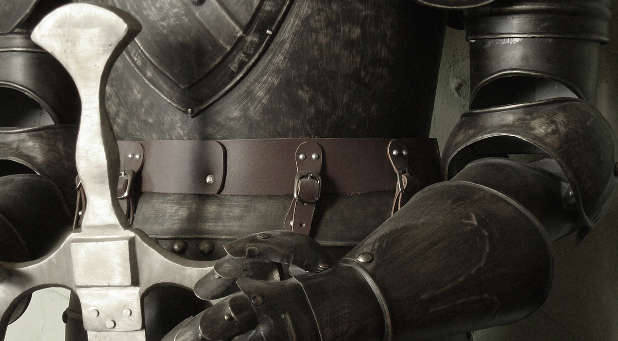Here’s What It Means to Be Spiritually Vigilant
Think of America before and after 9/11 and you’ll understand vigilance.
Nowadays everyone is on high alert, especially where large crowds gather. The smallest thing, such as a package left unmanned, triggers the evacuation of malls or airports.
Threats of violence now fall under the criminal act of terror threats. That’s a new crime. A life of vigilance requires new laws, new behaviors and even new slogans—”If you see something, say something” comes to mind—to reinforce an attitude of watchfulness.
Think also of the impact of the Boston Marathon bombing. A new slogan came to life in its aftermath too. Within one year of the event, about 70,000 T-shirts were sold with the words “Boston Strong” on them.
This simple message rallied Bostonians and other Americans to be courageous in the face of our new world. That tragedy challenged us to become even more vigilant, especially at major sporting events.
As a runner, my attitude toward prerace screenings of my personal belongings is that of welcome. Years ago I would have considered it a nuisance. Today, I applaud it. I see it as one aspect of living with a heightened sense of alertness.
Consider what it’s like to be in a place where vigilance isn’t in place. On a recent trip to Rome to see the Vatican, my wife and I, along with other tourists, walked through the customs checkpoint in Rome’s airport undeterred. It was strange.
No one stopped us to see our passports, search our bags or inspect other important documents. In fact, out of my peripheral vision I saw one American question the relaxed customs officer with his rich New England accent. “Don’t you need to check my papers?” he asked.
The American’s attitude toward vigilance was so ingrained that he was extremely reluctant to pass through the checkpoint without some type of clearance.
The Italian officer smiled and spoke in English slowly so the American could understand his accent: “Get out of here!” The shocked American struggled to appreciate the lack of vigilance applied in this situation. Yet he listened and walked on briskly to get away from the uncomfortable feeling of life on the sidelines.
Some believers are sidelined because they’ve become discouraged by the fight. They have not learned how to pace themselves when it comes to spiritual warfare. This battle lasts a lifetime.
It starts when we’re born, and it should take on a new clarity when we’re born again. But it ends when we die. The battle ends when heaven’s gates open to us.
Until then we must find ways to keep ourselves vigilant and engaged without becoming overwhelmed or decommissioned by discouragement at the length of the war.
Just as soldiers need furloughs and the Coptic priests need shifts to guard the grotto, you must pace yourself to be a career soldier. Leading a balanced spiritual life is a surefire way to create respite for yourself.
Allegiance should not be one-sided. We must join God on our knees in His battle against evil and wickedness. Disdain for the fight is the same as declaring to God, “Fight Your own battles!”
Johann Albrecht Bengel, the Lutheran theologian in the 1700s who greatly influenced John Wesley, suggested, “We do not have God’s permission to quit praying until He gives us some answer.” It’s wrong not to wield the weapon of prayer! {eoa}
David D. Ireland, Ph.D., is the founding and lead pastor of Christ Church in New Jersey. He is an author, an international speaker and a diversity consultant to the National Basketball Association.
To learn more, read this…
Learn how to fight your spiritual enemy skillfully and bring deliverance to captives through Pastor David Ireland’s latest book, The Weapon of Prayer: Maximizing Your Greatest Strategy Against the Enemy (Charisma House). You can find it at amazon.com and christianbook.com or wherever Christian books are sold.
















































